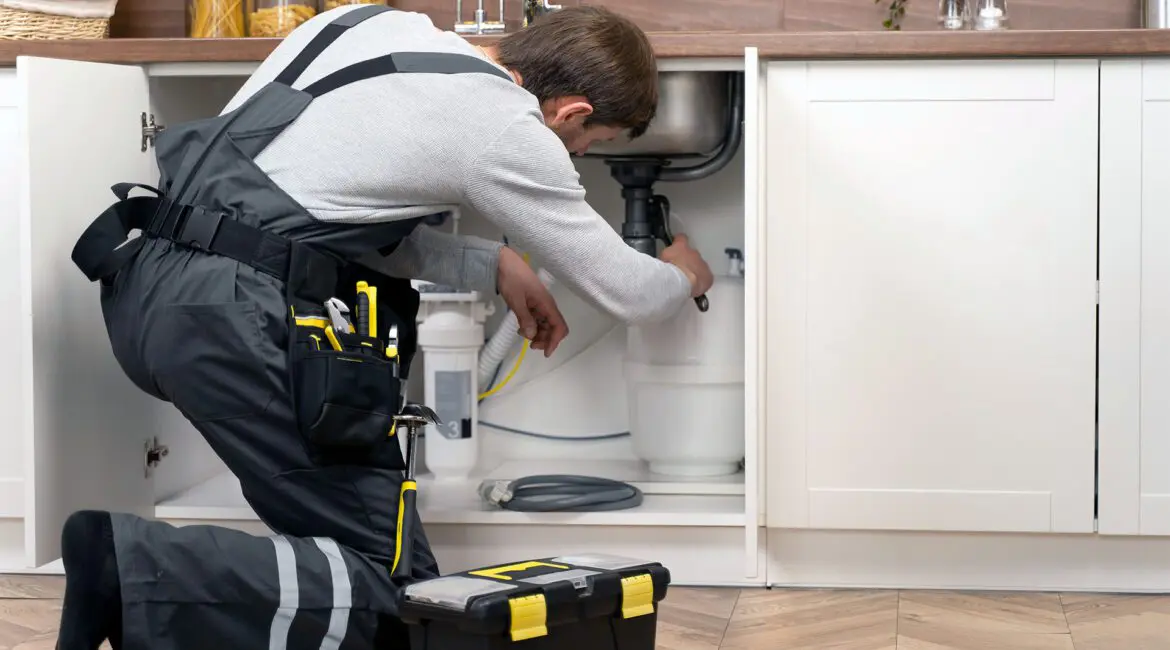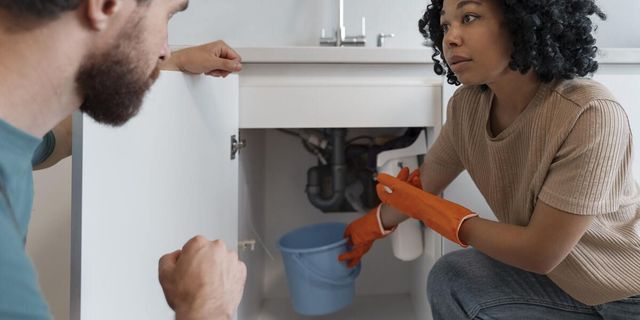Quick Tips for Urgent Plumbing Issues: What to Do Until A Plumber Arrives
Quick Tips for Urgent Plumbing Issues: What to Do Until A Plumber Arrives
Blog Article
What're your beliefs on Expert Tips for Emergency Plumbing Repairs?

Pipes emergency situations can strike any time, triggering tension and prospective damage to your home. Whether it's a burst pipe, a clogged drainpipe, or a leaking tap, understanding how to manage the situation until a specialist plumbing technician shows up can save you from further complications. This article gives crucial emergency situation plumbing suggestions to help you mitigate damages and gain back control during a plumbing crisis.
Switch off the Water System
The primary step in any type of plumbing emergency situation is to turn off the supply of water. For localized concerns, such as a dripping faucet or toilet, switch off the shutoff near the fixture. In the case of a significant leak or burst pipeline, find your home's main water shut-off shutoff and transform it off instantly. Recognizing the place of these valves in advance can save beneficial time throughout an emergency situation.
Turn off Your Water Heater
In particular emergency situations, such as a ruptured pipe, it's wise to shut down your water heater. This prevents overheating or damages to the device when water quits streaming. Shut off the power supply to the water heater (electric or gas) and allow it cool to stay clear of prospective risks.
Temporarily Stop a Ruptured Pipeline
A ruptured pipe can result in significant water damages in mins. To alleviate the issue:
Call a professional plumbing technician immediately to attend to the problem permanently.
Have an Emergency Situation Plumbing Package
Prepare a basic plumbing emergency situation kit to manage minor problems properly. Your kit must consist of:
Having these tools accessible can make a considerable difference in your capacity to manage emergency situations.
Unclog Drains Securely.
A stopped up drain can be an irritating and messy concern. Here's just how to tackle it:.
If these techniques do not work, stay clear of using extreme pressure, as it may aggravate the blockage.
Handle Overflowing Toilets.
An overruning commode can create immediate chaos. Here's what you ought to do:.
Address Small Leaks with Temporary Solutions.
Tiny leakages can swiftly end up being considerable issues if left unchecked. Use these temporary solutions till professional aid gets here:.
While these repairs aren't long-term, they can help decrease water loss and damages.
Deal With Frozen Pipes Meticulously.
In chillier climates, icy pipelines are a common emergency situation. If you presume a frozen pipeline:.
Know When to Call a Professional.
While quick fixes can aid briefly, certain pipes issues need immediate specialist attention. Call a plumbing professional if:.
Immediately speaking to an expert makes sure the issue is solved appropriately and avoids more complications.
Stop More Damage.
Taking fast activity to reduce damages can save you time and money in the future. Here's exactly how:.
Final thought.
Pipes emergency situations can be overwhelming, but with the ideal expertise and tools, you can manage the circumstance successfully till help arrives. By shutting off the water system, dealing with little leakages, and making use of temporary fixes, you can reduce damages and maintain your home safe. Bear in mind, these pointers are temporary solutions; always seek advice from an accredited plumbing professional to take care of the root cause of the problem. Preparation and quick reasoning are your ideal allies in any kind of pipes emergency situation.
8 Helpful Tips for Managing Plumbing Emergencies at Home
If your plumbing system hasn’t failed once, wait for it because almost everyone has a story to tell. Sometimes, it could be simple emergencies such as a leaking pipe, a blocked cistern, or even a big burst pipe. In situations like this, you need to have some handy tips to save you some money and from possible damages.
Take care of minor issues early.
Sometimes, you could have avoided an emergency by taking proactive measures while it was still early. Some major plumbing emergencies can be a result of an ignored minor issue. We recommend that you have items like plumbing tapes and other related items. A plumbing tape can allow you to manage minor leaks before the plumber arrives.
Cut off the water supply.
This tip is essential in almost any type of leakage problem. For problems like minor leakages in the toilet or kitchen, turn off the supply that takes water to the affected pipes. If the leakage is a major pipe, you must shut off the supply valve to the entire building. This will help you avoid flooding your home and neighbors if you share a flat.
Know your plumbing system
Folks typically move into a new apartment without understanding the water supply around the building. This can prove disastrous if a water emergency arises and the plumber is far away. The previous tip will prove useless if you don’t practice this one. More importantly, know where your water shut-off valve is located – you’ll need that knowledge to prevent potential home floods.
Have some common handy tools
There are lots of plumbing emergencies that you can handle without hiring a plumber. That’s why you must keep some tools available always. Some tools that you can use to fix simple plumbing emergencies easily include plumbing tapes, screwdrivers, thread seal tapes, plungers, pliers, tape measures, and rubber gloves.
Insulate your pipes from cold
You’ll save yourself from many plumbing expenses if you protect your water pipes from the cold. This is because of the harmful effects that cold weather can have on your pipes. During winter, your pipes can burst from being overly expected to freezing temperatures. So, make sure insulators are there to keep the pipes working correctly.
Avoid practices that will clog your toilet.
Many people indulge in practices that can damage the plumbing system of the entire building. One of these is when they use their toilet to dispose-off garbage. They flush all kinds of things, such as paper towels, bandages, hairs, female sanitary products, etc., down the toilet. This will block your toilet in the long run, incurring unnecessary expenditures. Dump such waste in the trash instead.
Check your dials regularly.
Sometimes, there could be leakages in your home without noticing them in time. So, constantly monitor your water meter dial. If the dial is reading when there is nobody using water, this is an indicator that there is leaking. Check for leaks immediately. Call a plumber as soon as possible if you can’t find any.
https://www.constructionplacements.com/8-helpful-tips-for-managing-plumbing-emergencies-at-home/

I'm certainly very focused on What to Do While Waiting for an Emergency Plumber and I am hoping you appreciated the piece. Kindly pause to promote this entry if you appreciated it. Thanks a lot for going through it.
Click Here Report this page